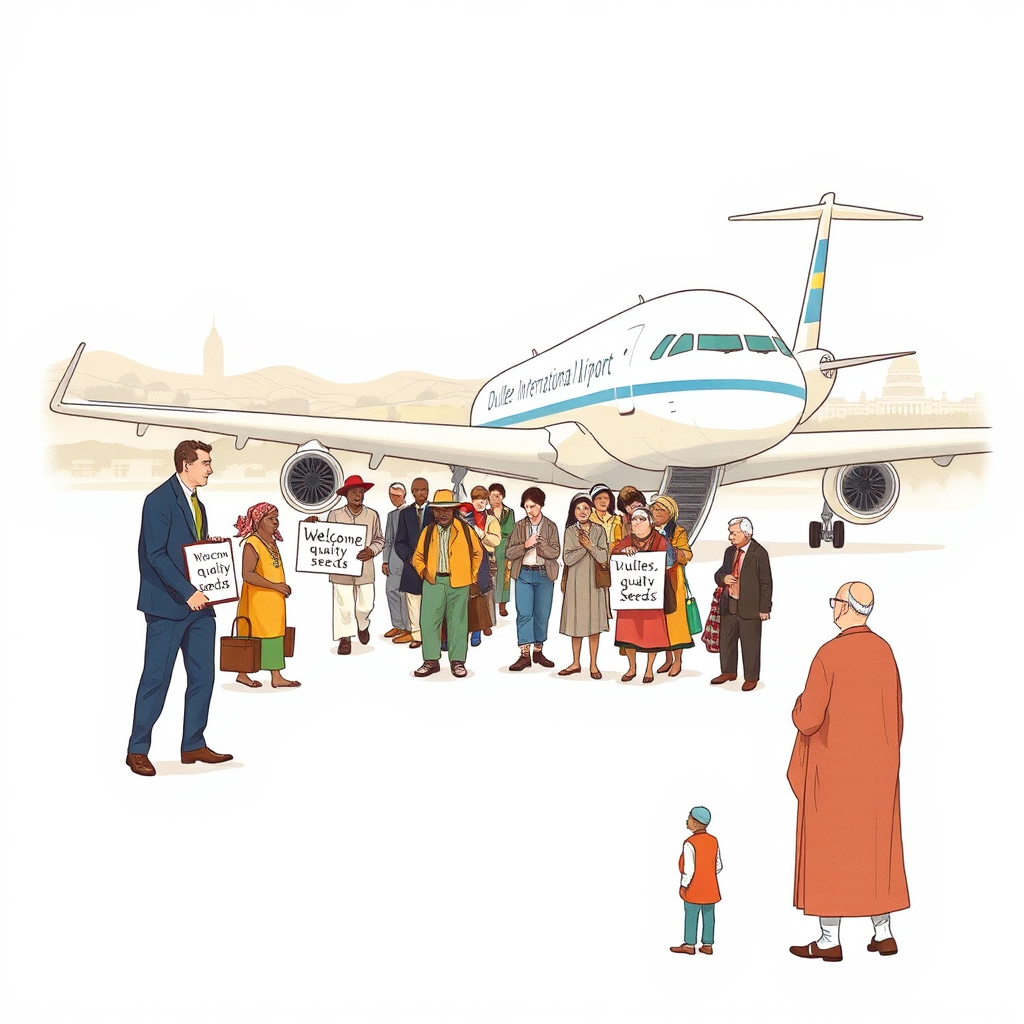Trump's Selective Refugee Plan Sparks Controversy

On his inaugural day back in office, President Donald Trump enacted a sweeping suspension of all refugee admissions to the United States, disrupting the plans of thousands seeking refuge from persecution and violence. Just 18 days later, he announced an exception for white South Africans, whom he described as ‘victims of unjust racial discrimination.’
Monday marked a significant shift in the U.S. refugee program when a chartered plane carrying approximately 50 Afrikaners, descendants of primarily Dutch colonial settlers, arrived in the country. This group, which included farmers and their families, was greeted by Trump administration officials at Dulles International Airport in Virginia. Christopher Landau, the deputy Secretary of State, welcomed them, calling them ‘quality seeds’ who would ‘bloom’ in the U.S.
Trump’s decision to prioritize Afrikaners was partly influenced by a 2024 South African law aimed at redistributing agricultural land from white to black ownership. Trump claimed that ‘farmers are being killed’ and that their land is being confiscated, although South African officials dispute these allegations, stating that there is no evidence of targeted violence against white farmers.
The first group of Afrikaners was not vetted by the United Nations High Commissioner for Refugees, which typically handles refugee referrals. Instead, their admission was part of a broader relocation effort orchestrated by the Trump administration, with support from key allies like Elon Musk, who has advocated for the protection of white South Africans.
The move has sparked controversy, particularly from organizations like the Episcopal Church, which refused to assist in resettling the Afrikaners. The church’s presiding bishop, Rev. Sean W. Rowe, expressed disappointment in the preferential treatment given to this group over others who have been waiting in refugee camps for years. Rowe emphasized the importance of caring for the poor and vulnerable, as taught by Jesus, and criticized the Trump administration for effectively shutting down the U.S. Refugee Admissions Program.
The Biden Administration had previously increased refugee admissions, welcoming 100,034 people in the 2024 fiscal year, up from 60,014 in 2023 and 25,465 in 2022. The largest groups of refugees during this period came from Africa, followed by Asia, Europe and Central Asia, Latin America and the Caribbean, and the Near East and South Asia.
Critics, such as Bill Frelick of Human Rights Watch, argue that Trump’s decision to limit refugee admissions to a select few white South Africans undermines decades of U.S. efforts to help those in need. Frelick contends that by bypassing the U.N.’s established refugee vetting process, the Trump administration is setting a dangerous precedent for other countries.
The Trump administration’s approach to refugee admissions is a stark departure from established practices and raises serious concerns about fairness and the protection of vulnerable populations. While the administration may claim to be helping a persecuted group, the lack of transparency and the disregard for established refugee protocols call into question the true motives behind this policy shift.
The Trump administration’s decision to favor white South Africans over other refugees is a troubling indication of a broader trend towards selective humanitarianism. By prioritizing a specific group based on race and political influence, the administration is not only undermining the integrity of the U.S. refugee program but also sending a dangerous message to the rest of the world. This move sets a dangerous precedent that could lead other countries to adopt similar discriminatory practices, further endangering the lives of those most in need of protection. It is imperative that the U.S. reaffirms its commitment to a fair and inclusive refugee policy that prioritizes the most vulnerable, regardless of their race or political affiliations.